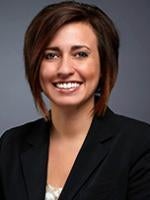The United States Supreme Court granted certiorari in the First Circuit case Universal Health Services, Inc. v. Escobar to decide the validity and application of the implied certification theory of the False Claims Act (FCA). The FCA imposes civil liability for knowingly presenting, or causing to be presented, a false or fraudulent claim to the government for payment or approval. Courts have recognized two types of FCA claims: those that are factually false and those that are legally false. Legally false claims are founded on a false certification of compliance with a federal statute, regulation or contractual requirement and are further categorized as either expressly or impliedly false. An expressly false certification may occur when a request for payment explicitly certifies compliance, whereas the doctrine of implied false certification dictates that a request for payment implies a certification of compliance with the applicable statutes, regulations or contract provisions that are preconditions to payment.
Circuit courts are currently split on the issue of whether a condition for payment must be expressly identified, or whether a statute, regulation or contract provision may be a condition of payment even when it does not explicitly state payment is conditioned on compliance. Escobar involves allegations against a mental health clinic that submitted a claim for payment even though it was in violation of certain Medicaid supervision and licensure requirements. The plaintiffs did not allege that the health care clinic expressly certified compliance with the laws and regulations; rather, the health care provider was alleged to have impliedly certified compliance when it submitted a claim for payment. The First Circuit found that the Medicaid supervision and licensure requirements impose conditions of payment, and the health care clinic did, in fact, impliedly certify its compliance when it submitted its request for payment. The First Circuit is among those circuits upholding the validity of the implied theory of certification.
Universal Health filed a certiorari petition following the First Circuit’s holding and the Supreme Court has agreed to consider two questions:
-
“Whether the implied certification theory of legal falsity under the FCA—applied by the First Circuit below but recently rejected by the Seventh Circuit—is viable.”
-
“If the implied certification theory is viable, whether a government contractor’s reimbursement claim can be legally false under that theory if the provider failed to comply with a statute, regulation, or contractual provision that does not state it is a condition of payment, as held by the First, Fourth and D.C. Circuits; or whether liability for a legally false reimbursement claim requires that the statute, regulation or contractual provision expressly state that it is a condition of payment, as held by the Second and Sixth Circuits.”
A majority of the federal circuit courts have weighed in on the issue and most have, in some form, upheld the validity of the implied certification theory. The Seventh Circuit, on the other hand, rejected its validity and gave rise to the first question the Supreme Court will review. Among the circuits that upheld the validity of the implied certification theory, the Fourth and D.C. Circuits adopted the same expansive view as the First Circuit; those circuits found that any claim for government payments includes an implied certification of compliance, even if the rule, regulation or contract does not expressly state that compliance is a prerequisite to payment. The Second, Third, Sixth, Ninth, Tenth and Eleventh Circuits adopted a narrower view, and limited the application of the implied certification theory to those situations where compliance with an applicable statute, regulation or contract includes an express prerequisite to payment.
The Supreme Court’s ruling in Escobar will be critical for those entities that contract with and seek payment from government payors. The Supreme Court will likely hold oral arguments in March or April of 2016, and a decision is expected in June of 2016.



 />i
/>i

